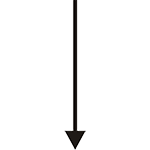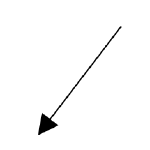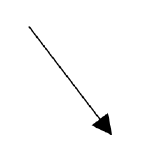CON Undergraduate Disciplinary Action Committee Procedural Flow Sheet
| Home | Appendices |
| UNIVERSITY OF NEBRASKA MEDICAL CENTER COLLEGE OF NURSING |
||
| Undergraduate Disciplinary Action Committee* Procedural Flow Sheet (NOT intended as a substitute for policy in Student Handbook) |
Subsection: Appendix K | |
| Section - Appendices | Originating Date: October 2003 | |
| Responsible Reviewing Agency: Undergraduate Admission, Progression, Graduation and Scholarship/Grant Committee |
|
|
| Related documents: |
||
Procedure for Imposition of Disciplinary Action – Faculty
Suspected Breach of Professional Behavior |
Note:
- If the student agrees with the disciplinary action, and the disciplinary action results in a change of status for the student, the faculty member will notify student services of the change in status.
- If the student disagrees with the proposed disciplinary action and requests a meeting with the faculty member, the faculty member may ask the Assistant Dean to be present for the meeting.
Procedure for Imposition of Disciplinary Action – Dean
Procedure for Imposition/Appeal of Disciplinary Action – Student
- Student receives:
- Letter from Dean
- Attachments, which include:
- Copy of the faculty member’s written complaint
- Disciplinary action proposed for the student
- List of all documents included in the mailing
- The list must be signed by the student, confirming that all listed documents were received
- Signed list, along with indication of student’s intent to appeal, must be returned to the Chair of the Academic Review Committee within 2 weeks
Procedure for Appeal of Disciplinary Action – Hearing Board
- Chair will receive:
- Signed list for materials included in communication from the student within 2 weeks of receipt of letter from dean
- Letter of intent to appeal from the student within 2 weeks of receipt of disciplinary action letter from dean
- Disciplinary action materials from the dean’s office if student is appealing the disciplinary action
- Chair will:
- Forward to the faculty member(s) involved a copy of all student appeal documents
- Request a written statement from the faculty involved setting forth his/her response to the student’s appeal document, including his/her version of the facts related to the alleged disciplinary breach
- Send the faculty’s version of events, the full statement, and any related documents to the student using all forms of mail delivery outlined in the dean’s directions.
- Forward copies of all appeal materials to the members of the hearing board.
- Appoint some person (board member, staff member, court stenographer) to keep minutes of board proceedings and maintain a verbatim account of the hearing.
- Hearing board:
- May request clarification, in writing, from either the student or faculty
- Any statements of clarification received by the board must be promptly shared with the other party
- Will, within 10 working days of the conclusion of the investigation/hearing, determine whether the disciplinary charges against the student have been sustained by the weight of the evidence.
- Will take a vote by secret ballot. If the board finds:
- By a majority vote that the charges have not been sustained, the board shall submit its report and conclusions to the Dean, the faculty member instituting the charge, and the student, and the charges are dismissed.
- A tie vote, the charges will be dismissed.
- By a majority vote that some or all of the charges have been sustained by the weight of the evidence, the board shall submit its report and conclusions (with supporting rationale [including sufficient detail to support decisions and recommendations]) to the Dean, the faculty member initiating the charge, and the student. The report shall be accompanied by the decision of the board as to the disciplinary action to be invoked:
- Written Reprimand
- Grade Adjustment
- Disciplinary Probation
- Suspension
- Expulsion
- The charges have been sustained, the board will include notice to the student of the further right of appeal.
- The decision will be considered final unless within 10 working days after receipt of its decision, the student submits, in writing, an appeal to the Dean setting forth reasons for believing the findings are in error or that the disciplinary action prescribed is unfair or unreasonable.
- Notes:
- If the faculty or student have retained legal counsel, the Hearing Board chair should consult with the attorney for the Hearing Board before sharing copies of the materials with the student’s counsel.
- The chair shall give reasonable notice to the student and faculty of the date, time, and place of the scheduled hearing.
- The chair will ask the student and faculty if witnesses are desired. If yes, obtain the witnesses’ contact information and invite them to attend.
- A list of witnesses and/or advisors must be provided to the chair of the committee no less than 24 hours before the scheduled hearing. Contact information for any witness or advisor must be submitted with the list of names.
- After completion of the activities of a hearing board on any given appeal, all pertinent records are to be transferred to the office of the Associate Dean for Academic Programs. The records will be kept on file for four years, after which they will be disposed of in a confidential manner.
Procedure for Appeal of Disciplinary Action – Hearing
- In cases of written reprimand, grade adjustment, or probation:
- The hearing board may rule on the basis of the written evidence submitted, unless the faculty or student has asked to appear personally before the board.
- The student may appear, if desired, to testify, present evidence, and hear and question witnesses.
- Witnesses and advisors may be present, but unless the chair of the hearing board permits, may not directly question witnesses or otherwise participate in the proceedings.
- The hearing board should request University counsel for advisement during the process of planning for the hearing and may request that counsel be present during the hearing.
- In cases of suspension or expulsion:
- The hearing board shall conduct a hearing to:
- Hear all evidence.
- Hear and question witnesses.
- Have both the student and faculty present to testify and give evidence.
- Legal counsel shall be present to advise the board.
- The student and any witnesses may have advisors/counselors present at their own expense; the chair must be notified of advisors/counselors and their contact information at least 24 hours in advance.
- The Board, faculty, student, and their advisors may hear testimony and question witnesses.
Procedure for Appeal of Disciplinary Action – Evidence
- No evidence shall be admitted which would not be admitted in a state court criminal proceeding by reason of the method or manner in which it was acquired; therefore legal counsel will be present.
- The burden of proof rests with the faculty member bringing the charge; evidence must substantiate the charge.
- Findings or recommendations of the Board shall be based solely on the evidence introduced at the hearing.
- During the hearing, testimony from both faculty and the student should involve review of all relevant documents already received. This way, these materials become “evidence introduced at the hearing.”



